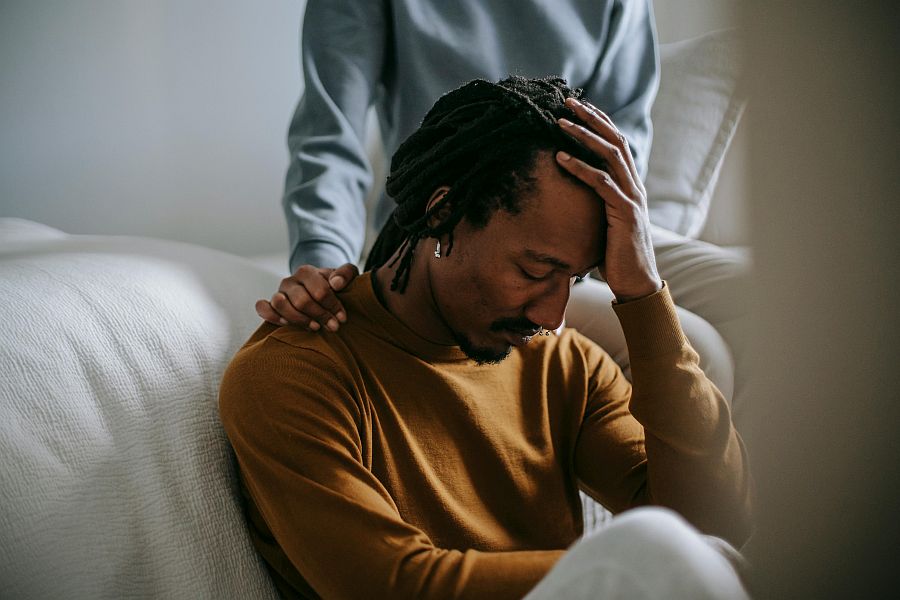Grief is one of life’s most challenging experiences, and the way we cope with it often depends on the circumstances of the loss. When someone we love dies suddenly, whether from an accident, suicide, or unexpected health event, it can feel like the world is turned upside down in an instant. On the other hand, when a death is anticipated, such as after a long illness or due to old age, the process of grieving often begins long before the actual loss. Both types of loss are deeply painful, but the way they impact us and how we navigate the aftermath can differ significantly. Let’s explore these two experiences and some strategies to cope with each.
Sudden Death: The Shock and Aftermath
The Emotional Impact
 When death happens without warning, it’s often accompanied by an overwhelming sense of shock and disbelief. You might find yourself repeating thoughts like, “This can’t be real” or “I just saw them”. The suddenness of the event can make it hard for your mind to process what has happened, leaving you feeling emotionally numb or disconnected from reality.
When death happens without warning, it’s often accompanied by an overwhelming sense of shock and disbelief. You might find yourself repeating thoughts like, “This can’t be real” or “I just saw them”. The suddenness of the event can make it hard for your mind to process what has happened, leaving you feeling emotionally numb or disconnected from reality.
Grieving a sudden loss can feel like an emotional whirlwind. One moment, you might be in denial, and the next, overcome with sadness, anger, or even guilt. This roller coaster of emotions is natural as your brain struggles to catch up with the reality of the loss.
Trauma and Complicated Grief
When a death occurs suddenly, particularly in traumatic circumstances like an accident or suicide, grief often overlaps with trauma. Survivors might experience intrusive memories, nightmares, or flashbacks about the event. This form of grief can sometimes lead to what’s known as complicated grief, where the mourning process becomes prolonged or deeply disruptive to everyday life.
In cases of suicide, feelings of guilt and self-blame can be especially intense. Survivors may ruminate on what they could have done differently or feel anger at their loved one for leaving them. These emotions are valid but can make healing more challenging.
Loss of Control and Existential Questions
The suddenness of the loss often shatters our sense of control and safety in the world. It’s not uncommon to find yourself grappling with existential questions like, “Why did this happen?” or “How can life be so unpredictable?” This search for meaning, though painful, is a natural part of processing a sudden loss.
How to Cope with Sudden Loss
- Talk to a Professional: Therapy can help you process both the trauma and the grief. Specialized approaches like trauma-focused cognitive behavioral therapy (CBT) or EMDR (eye movement desensitization and reprocessing) are particularly effective for traumatic loss.
- Lean on Support Networks: Whether it’s friends, family, or a grief support group, connecting with others can help you feel less isolated in your grief.
- Create Your Own Closure: Sudden deaths often leave us without a chance to say goodbye. Writing a letter to your loved one, creating a memory book, or holding a personal ritual can help bring a sense of closure.
- Focus on Small Steps: When everything feels overwhelming, grounding yourself in simple, manageable tasks can help you regain a sense of stability.
Anticipated Death: The Long Goodbye
Grieving in Advance
When you know a loved one’s death is coming, whether due to a terminal illness or old age, you may begin grieving long before they pass away. This is called anticipatory grief, and it can be an emotionally complex experience. You might feel sadness for the future loss, worry about how life will change, and even relief that their suffering will end…all at the same time.
While anticipatory grief can give you time to emotionally prepare, it doesn’t mean the actual loss will hurt any less. In fact, many people find themselves surprised by the intensity of their emotions when the death finally occurs.
The Challenges of Care Giving
If you’re caring for someone with a terminal illness, the grieving process can be deeply intertwined with feelings of exhaustion and stress. Care giving often takes a physical and emotional toll, and after the death, it’s common to feel both immense sadness and relief that the care giving journey has ended. These mixed emotions are entirely normal but can be confusing to process.
Opportunities for Closure
One unique aspect of an anticipated loss is the opportunity to say goodbye. This time allows for meaningful conversations, sharing memories, and even resolving unresolved conflicts. While this doesn’t erase the pain of losing them, it can provide a sense of peace and closure that’s harder to achieve in cases of sudden death.
How to Cope with Anticipated Loss
- Use Support Services: Hospice and palliative care programs offer not only medical support but also emotional guidance for both the person who is dying and their family.
- Cherish Meaningful Moments: Use the time you have to connect with your loved one. Express gratitude, share stories, and create memories that you can carry forward.
- Take Care of Yourself: If you’ve been a caregiver, it’s important to prioritize your own well-being. Allow yourself to rest and seek support if you’re feeling overwhelmed.
- Honor Their Legacy: After their passing, finding ways to honor their memory, such as creating a scrapbook, planting a tree, or holding a celebration of life, can help you stay connected to them.
Key Differences in the Grieving Process
Grief Is Deeply Personal
Whether a loss is sudden or anticipated, grief is a deeply personal and non-linear process. There’s no right or wrong way to grieve, and your emotions may shift from day to day. Both types of loss come with their own challenges, but they also offer different opportunities for healing.
What matters most is that you give yourself the space and grace to grieve in your own way. Seek support, express your feelings, and remember that healing takes time. Whether your loss was sudden or expected, you don’t have to navigate it alone.

